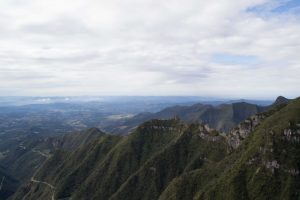Today is Earth Day, an annual event dedicated to raising awareness and inspiring action to tackle the various environmental challenges facing our planet. The day is marked by an estimated one billion people across more than 190 countries.
This year’s theme is Invest in our Planet, marking the importance of dedicating time, resources, and energy to protecting our environment and solving the climate crisis.
At BU, we’re passionate about protecting and preserving a sustainable environment. Through our research we’re helping to save endangered species, protect coastal and freshwater regions, and understand ecosystems – learning from the past to impact the future. Here are just some of the ways in which we’re doing so:
3DPARE project – creating new habitats for marine life
Coastal habitats have been gradually degraded through a range of human activity, including fishing, dredging, pollution and coastal development. Along with partners in France, Spain and Portugal, BU is part of the 3DPARE (3D Printing Artificial Reefs in the Atlantic) project – which is exploring whether 3D printed artificial reefs can help provide new habitats for marine life and increase biodiversity.
Nine reefs made from sustainable, low-carbon concrete were placed in Poole Harbour in March 2020 and are now home to over 100 species – including edible crab, pollack, wrasse, gobies and mullet.
ADDISONIC – better prediction and extension of the lives of materials, reducing global waste
The ADDISONIC (Advanced Manufacturing Ultrasonic Fatigue Prediction and Life Extension) research cluster at BU is finding ways to better predict and, most importantly, extend the lives of engineering materials.
The team aims to extend the life of components by applying ultrasonic fatigue testing to much more quickly and reliably predict the lifespan of individual parts.
This will not only enable these parts to be manufactured more efficiently but will also reduce the amount of material used in their production – decreasing waste and reducing the likelihood of materials ending up in landfill.
Institute for the Modelling of Socio-Environmental Transitions (IMSET) – using the past to support our response to environmental change
With expertise across archaeology, ecology and modelling, IMSET aims to address the issue of how we respond to environmental change, learning from how past societies adapted.
 Current research, being led by Dr Phil Riris, is exploring how human occupation and land use over hundreds of years has affected the Brazilian Atlantic Forest – one of the world’s most critically threatened tropical forests. It’s hoped that these insights will help to inform future protection and conservation efforts.
Current research, being led by Dr Phil Riris, is exploring how human occupation and land use over hundreds of years has affected the Brazilian Atlantic Forest – one of the world’s most critically threatened tropical forests. It’s hoped that these insights will help to inform future protection and conservation efforts.











 Dr. Ashraf cited on ‘Modest Fashion’ in The Guardian
Dr. Ashraf cited on ‘Modest Fashion’ in The Guardian NIHR-funded research launches website
NIHR-funded research launches website Academics write for newspaper in Nepal
Academics write for newspaper in Nepal New paper published on disability in women & girls
New paper published on disability in women & girls MSCA Postdoctoral Fellowships 2025 Call
MSCA Postdoctoral Fellowships 2025 Call ERC Advanced Grant 2025 Webinar
ERC Advanced Grant 2025 Webinar Horizon Europe Work Programme 2025 Published
Horizon Europe Work Programme 2025 Published Horizon Europe 2025 Work Programme pre-Published
Horizon Europe 2025 Work Programme pre-Published Update on UKRO services
Update on UKRO services European research project exploring use of ‘virtual twins’ to better manage metabolic associated fatty liver disease
European research project exploring use of ‘virtual twins’ to better manage metabolic associated fatty liver disease